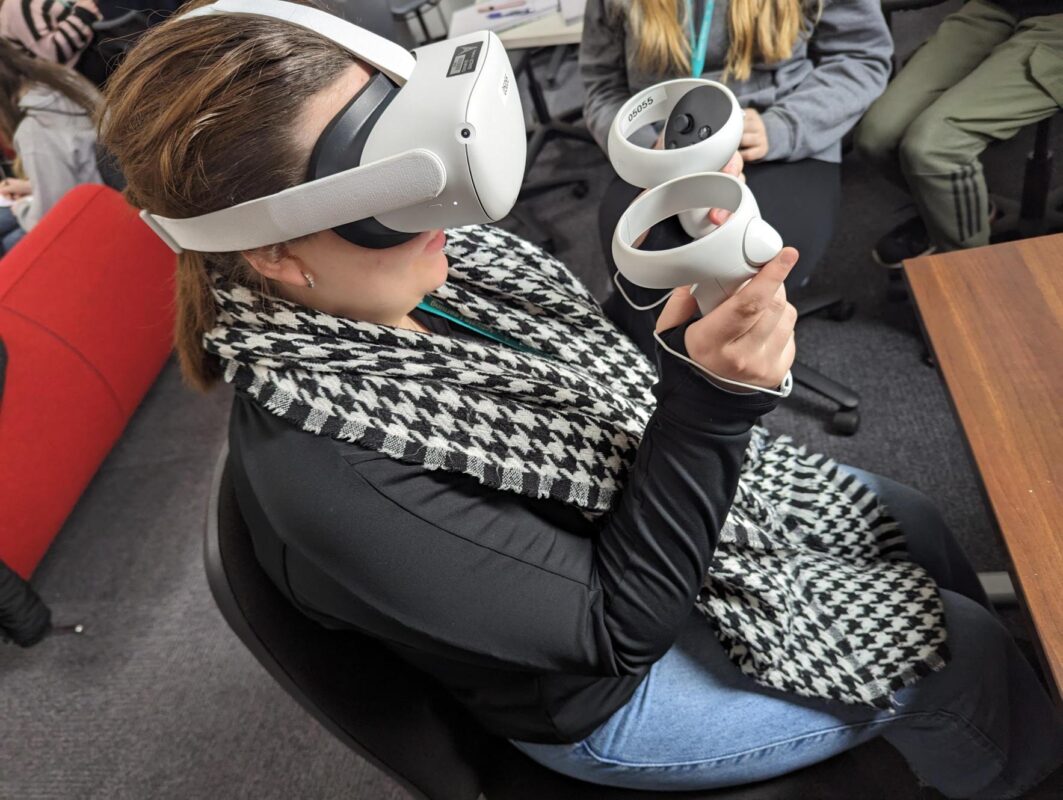Activate Learning develop sector leading VR application for Early Years students to detect childhood illness and signs of abuse

Activate Learning (@Activate_Learn) is proud to announce the launch of its latest virtual reality (VR) application to support curriculum delivery – Early Years VR: Childhood Illnesses and Early Years VR: Signs of Abuse. This innovative technology, developed in alignment with the NCFE’s Early Years T Level curriculum, aims to equip students with the skills to recognise common childhood illnesses and signs of physical abuse in infants and toddlers.
Safeguarding is a critical aspect of working with children, and this VR asset provides students with a unique opportunity to gain hands-on experience in a safe and controlled virtual environment. By immersing themselves in scenarios involving virtual children, students can develop their ability to identify and respond to potential risks effectively.
Cheri Ashby, Deputy CEO at Activate Learning, said: “The development of our Early Years sector leading VR technology will significantly enhance the learning experience of our students.
“They will be able to practise identifying signs of abuse and illness in children in a safe environment, and then apply their learning to real-world settings.
“This technology will increase our students’ confidence, motivation and skills in working with children in different early years’ settings. This way of learning also supports our unique Learning Philosophy, which focuses on the impact of the brain, motivation and emotion on individuals’ learning.”
Kim Blanchard, Director of Digital Education and Artificial Intelligence at Activate Learning, said: “We are excited to introduce Early Years VR: Childhood Illnesses and Early Years VR: Signs of Abuse as part of our digital education initiatives. As we understand, when 90% of the information we consume is visual with a high rate of retention of that knowledge past three days, then such learning opportunities provide the learners with every opportunity of success.
“By providing learners with an immersive and interactive way to experience issues and situations they might not otherwise experience and learn about safeguarding practices, it empowers them with the knowledge they can carry forward into employability, ensuring they are well prepared to address the needs of young children in their care.”
Recently, Activate Learning welcomed its first cohort of students to experience the VR apps at the Banbury and Bicester College Technology Enhanced Learning (TEL) Space. Feedback from the group was overwhelmingly positive, with students praising the immersive nature of the experience and the inclusion of diverse skin tones in depicting various conditions. They noted that the apps will be invaluable resources for teaching safeguarding principles effectively.
Students studying the Education and Early Years T Level at Guildford College also tried out the VR apps recently.
Juliet Lifford, Early Years Teacher at Activate Learning, said: “This provided our students with an enriching experiential learning opportunity. The students could navigate the VR apps easily and found it complimented the Education and Early Years T Level exceptionally well.
“The students could embed their learning further and make direct links to placement experience and classroom delivery. We look forward to using it more in the future to enhance our delivery and our students’ future careers.”
Emma, an Early Years student at Guildford College, said: “I found the information I learnt through the app highly relevant, especially related to how long a baby may need to be absent from a setting.”
“The app was very easy to navigate and the information easy to understand.”











Responses